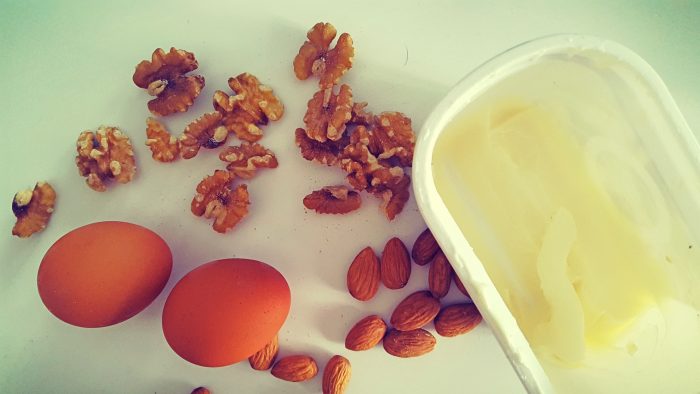

The number of people around the globe deciding to go vegan is increasing day by day. Going vegan is more than just an experiment; it is a commitment towards a healthier lifestyle.
In simple dietary terms, it means consuming primarily plant-based products as an alternative to animal-based products. This means avoiding meat, eggs, and all sorts of dairy. The vegan diet is gaining increasing popularity since it consists of substantial amounts of vitamins including B1, folic acid, C, E, magnesium and iron.
Furthermore, you are able to maintain your cholesterol levels as it is low in cholesterol and saturated fats. Diseases such as type 2 diabetes and colon cancer are reduced by maintaining a healthy plant-based diet.
Additionally, a vegan diet leads to weight loss as well as healthy skin, hair and nails. It also increases energy levels, thereby making one more active and fighting laziness and fatigue. Avoiding dairy products forces a person to avoid milk, eggs, butter, cheese, and the list goes on. The prospect of eliminating meat eggs and dairy from one’s diet may seem daunting at first. However, there are many great alternatives for such foods, and the results are highly beneficial.
Dairy Cheese—Almond Cheese
Cheese lovers know that it is not something which can simply be eliminated from one’s diet. It provides a great depth of flavour and enriches the texture and overall experience of a dish. What’s a burger without cheese? To replace dairy cheese, homemade vegan cheese can be made with cashews, macadamia nuts, and my personal favourite; Almonds. Soy and nut-based versions of cream cheese can also be found, as well as a dairy-free, gluten-free or soy-free version made from a blend of vegetable oils, tapioca starch and pea protein isolate.
Whole Milk—Almond Milk
Milk is one dairy product that has multiple uses, be it cooking or being used as a beverage. Plant-based milk alternatives can be produced from soy, oats, rice, almond, coconut, flax seeds, and several other grains. A wide variety of these products are fortified with the use of vitamin D and calcium to make the plant-based milk very similar to dairy-based milk. The plant-based milk does lack in the amount of proteins provided by dairy-based milk. Yet, the former is very low in fats compared to the latter. Again, my personal favourite has to be almond milk due to its silky smooth texture, great taste, and exceptional health benefits.
Whole Milk Yogurt—Coconut Milk Yogurt
Yogurt is another dairy product that is made by adding live bacterial cultures to milk to start the process of fermentation. Yogurt is used as a snack, dressings for salads, and marinades. The vegan alternatives are more or less the same as those mentioned for milk, such as soy, nuts, seeds etc. The only extra ingredient to add is the pro-biotic bacteria in order to ferment the plant-based milks to create vegan yogurt. The different types of vegan yogurt available include coconut milk yogurt, soy milk yogurt, hemp yogurt and almond milk yogurt. Here also, there exists a slight variation between both, vegan and dairy yogurts, in terms of the protein and fat content.
Dairy Butter—Nut Butter
Butter is arguably the most used dairy product out of all of those mentioned, since it is used a lot in cooking. It is used as a substitute for oil and lends fats and flavour to food. It is used in baking, as a general spread on bread and also as a dressing. There are many non-dairy butter alternatives, such as vegetable oils or coconut oils. The substitutes for dairy-based butter are vegetable oils, coconut butter, and nut butter. The calories and fat content in the vegan and dairy butter are generally similar.
Whole Milk Cream—Cashew Nut Cream
Another dairy product that is commonly used is cream, which is the fat layer separated from fresh milk. Cream ranges from 10% to 40% in fat content. Vegan alternatives to cream are mostly made with coconut milk. However, a great replacement is also cashew nut or cashew milk cream, providing a similar texture and richness. Other creams made from vegetable oils and nuts can also be found. Vegan cream is usually lower in calorie content and fat content than their dairy counterparts.
Bonus: Eggs—Silken Tofu
Although not a dairy product, eggs generally form the staple diet in common households. They provide the human body with high levels of protein. To fulfil this need, silken tofu is a great alternative for eggs. It has 10 grams of protein per serving, while one egg has roughly six grams of protein. If you puree the silken tofu, and use it for baking instead of adding eggs, the result will be pretty much the same. Apart from tofu, kidney beans and chickpeas are also great vegan alternatives to consummate protein needs.
Therefore, we find that there are a lot of nutritious and delicious vegan alternatives for common dairy items out there. It is also important to know that going vegan is not just about modifying one’s diet, but changing one’s mindset for the better. The goal should be working towards eliminating animal cruelty while being healthy and energetic enough to do so.
Browse Front PageShare Your Idea
Comments
Read Elephant’s Best Articles of the Week here.
Readers voted with your hearts, comments, views, and shares:
Click here to see which Writers & Issues Won.









Very well written article Wali hussain . Bravo